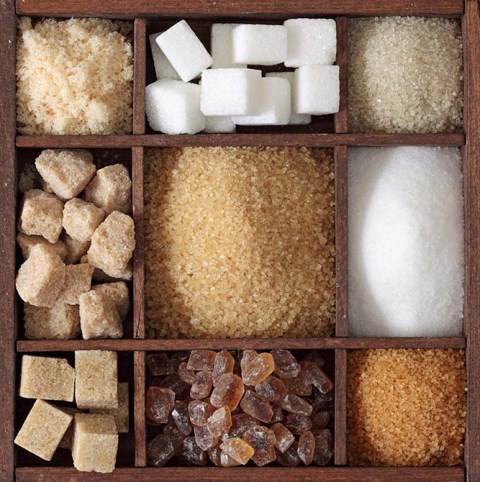Sugar might be part of what makes life sweet, but there is nothing sweet about the toll that too much can take on our health and wellness. While it’s true that some foods like fruit and dairy products contain natural sugars, consuming added sugars could be troublesome.
Calories from sugar don’t require much time to digest. The sugar rushes into the blood stream, stimulating the pancreas to secrete insulin to transport the sugar into the cells to be used as energy.
These simple sugars, known as glucose, are the fuel you need to fill your body’s gas tank. Any excess sugar that is not burned as energy, however, is stored as fat. If you are eating too much sugar your body won’t be able to keep up with the demand for insulin. If you are bed ridden or sitting for long periods of time you won’t be active enough to burn that energy before it’s converted to fat.
Aside from putting us at risk for obesity and the host of health issues that can come with it, sugar also contributes to inflammation within the body, lowering your immune system. Consuming sugar when you are sick or recovering from an injury or surgery can hinder your ability to get better as your body is managing the effects of sugar, not building new tissues or fighting off a virus.
If you’ve ever crashed after a sugar high you know the toll the sweet white stuff can take on your mental health. Too much sugar can contribute to anxiety, nervousness and a general feeling of being on the edge.
Even if you don’t have a sweet tooth you may be consuming more sugar than you think. Researchers from the University of North Carolina found added sugar 68 percent of processed and packaged foods. Many of these are savory foods you wouldn’t expect to contain sugar such as salad dressings, sauces, and even meat products.
It’s important for all of us to reduce the amount of sugar consumed in our diet, but especially so for those that may be ill or recovering from injury. Ditching sugar may be easier said than done – studies have shown sugar to be more addictive than narcotic drugs!
However with a little knowledge it can be easy to cut back on sugar. Here are a few tips:
Read labels
Sugar goes by almost 100 other names. Read the ingredients on any packaged foods you purchase – including savory foods you wouldn’t think would contain sugar. It can be hiding just about everything. Your body treats natural sugars like maple syrup and honey just the same as the white stuff so they should also be consumed in moderation.
Increase Protein and Fiber
Balanced blood sugar will help to reduce cravings. Eat protein and fiber at every meal and snack to help slow down the absorption of sugar and keep you feeling full for longer. A handful of almonds with your apple will do the trick and you’ll also benefit from the added nutrients!
Ditch the artificial sweeteners
Before you simply reach for artificial sweeteners to replace your sugar fix, researchers have found that no-calorie sweeteners can lead to overeating as they interfere with the body’s ability to count calories based on a food’s sweetness.
Reducing the amount of sugar in your diet can lower your risk of disease, increase the amount of energy your have and even result in weight loss – now that’s sweet!
Sugar Pseudonyms
There are almost 100 alternate names for sugar found on packaged foods. Here are just a few:

Brown rice syrup
Cane juice
Corn syrup
Dextrose
Fructose
Golden syrup
Maltose
Molasses
Sucanat
Sucrose
Turbinado



